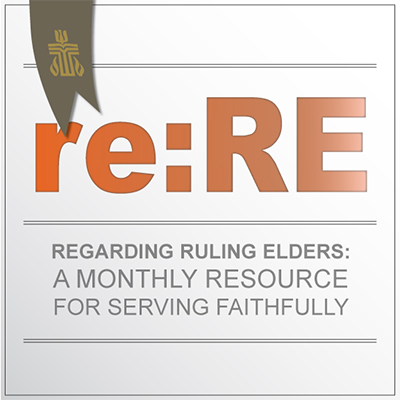Will you be a faithful deacon, teaching charity, urging concern, and directing the people’s help to the friendless and those in need, and in your ministry will you try to show the love and justice of Jesus Christ?
At first glance it might seem strange to include discussion on the ordination question posed to deacons in a series designed for ruling elders. The two offices are different. They have different functions. In many congregations, a board of deacons meets separately from a session made up of ruling elders. Indeed, some churches don’t even have ordained deacons. Why consider this question?
The answer is embedded in the Greek origin of “deacon,” "diakonia" (service) and "diakoneo" (to serve). In Acts 6:1–7 we read of the early church appointing seven disciples to attend to serving ministries — specifically the daily sharing of food so that widows were no longer neglected. This was ministry set apart from the prayer and preaching of the word that the 12 apostles were busy managing. Set apart and distinct, yes; yet, ministries of service are utterly tied to the call of all disciples to share the good news of Jesus Christ — then and now.
In our current Book of Order, those holding the office of deacon are particularly tasked with ministries of “compassion, witness, and service, sharing in the redeeming love of Jesus Christ for the poor, the hungry, the sick, the lost, the friendless, the oppressed, those burdened by unjust policies or structures, or anyone in distress” (G-2.0201). If that isn’t also the concern of ruling elders, pastors, and every church member in a congregation, we should reexamine our priorities. In churches where there are no ordained deacons, ministries of compassion, witness, and service are taken up by committees, teams, and individuals.
If you’ve only ever served in one church, you may have only one model in mind of the ministry undertaken by deacons. In practice, deacons’ service is varied, wide-ranging, and creative. In churches I’ve been part of, the service of deacons has included such diverse ministries as sharing meals for grieving people, greeting and welcoming visitors and worshipers, providing flu shot clinics and blood drives, collecting the Sunday offering for local outreach ministries, preparing communion elements, visiting hospitalized and homebound members, serving as a “shepherd” to a neighborhood group, praying for every member by name during Holy Week, and— in an old-school regional twist in one church — taking charge of property concerns with the understanding that the building is a tool for service to the wider community. Other churches have deacons leading regular intercessory prayer services, serving in coffee shops or breweries, and attending community meetings to listen for needs and meet people where they are.
Those called to serve as deacons need particular gifts to serve in these ways. In one church I served, I sat with the nominating committee as they sifted through names of potential elders and deacons. After listening to some comments about a member being “not ready” to serve as a ruling elder, and their name then being placed in the pool for potential deacons, I stopped the meeting for a necessary conversation. Those called to serve as deacons aren’t in training to serve as ruling elders someday. The tasks of deacons aren’t less important than those of elders, being a deacon isn’t a step toward session leadership, and the role of deacon isn’t reserved for any particular demographic of the church. Deacon ministry is a distinct calling.
Those called to serve as deacons lead with compassion. They have a heart for the hurting and a desire to help the church care for those within and outside the congregation in concrete ways. They embody the spirit of those early church diakonia leaders and fulfill this ministry in innovative and modern ways. Ruling and teaching elders must champion the ministry of those who serve as deacons in the high calling to ministries of service. Their faithfulness helps the whole church follow Jesus.
For Reflection
- What ministries of compassion, witness, and service are active in your congregation? Who serves in these roles?
- Where might your congregation be called to care for others within the church and community in new and creative ways?
- How do the materials in "Coming Alive in Christ: Training for PC(USA) Ruling Elders and Deacons based on the Constitutional Questions" further your understanding of this question?
For more on the role of deacons, view this webinar from the Year of Formation or take a look at the resources provided through the Presbyterian Publishing Corporation in this curated list.
Rev. Julie Coffman Hester is a pastor and writer in the Presbytery of Western North Carolina. She is inspired by faithful ruling elders, like her parents, and the remarkable disciples with whom she has served in local congregations.
This article is the 11th in a 12-part series focusing on the constitutional questions that church leaders answer upon their ordination and installation, using some of the materials from "Coming Alive in Christ: Training for PC(USA) Ruling Elders and Deacons Based on the Constitutional Questions," which is available through Equip, the church’s online training platform.

